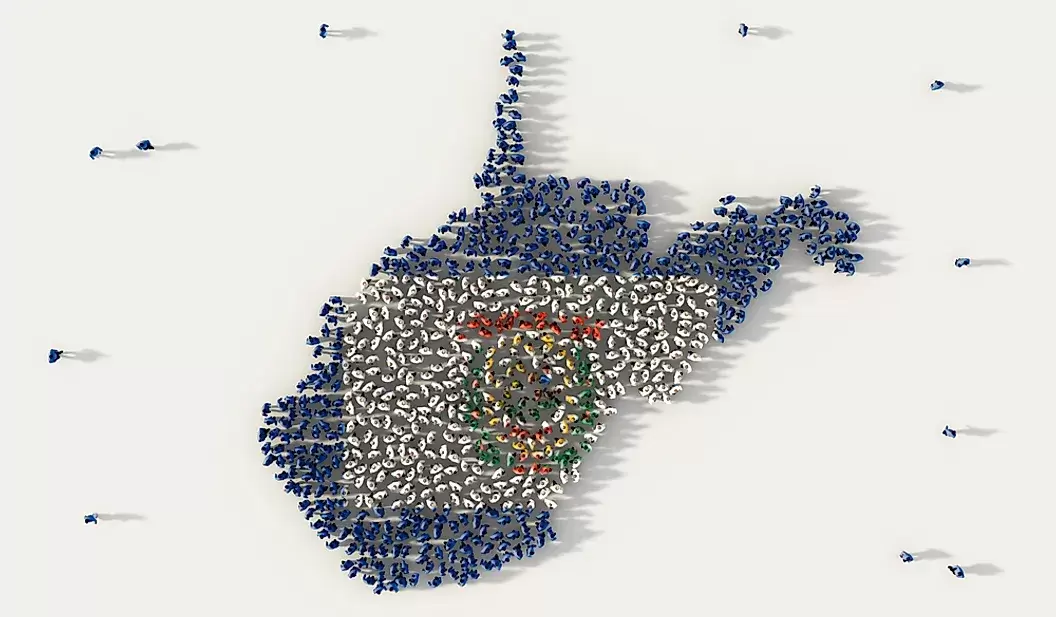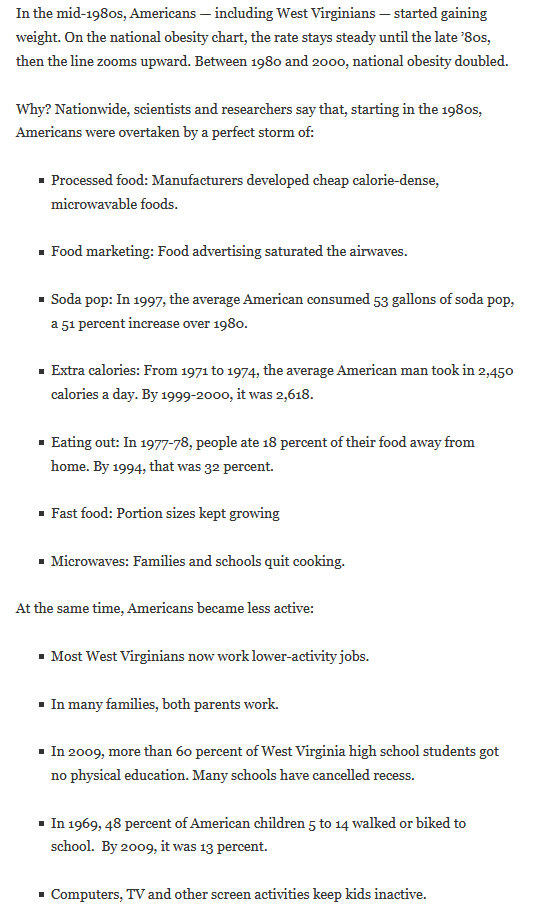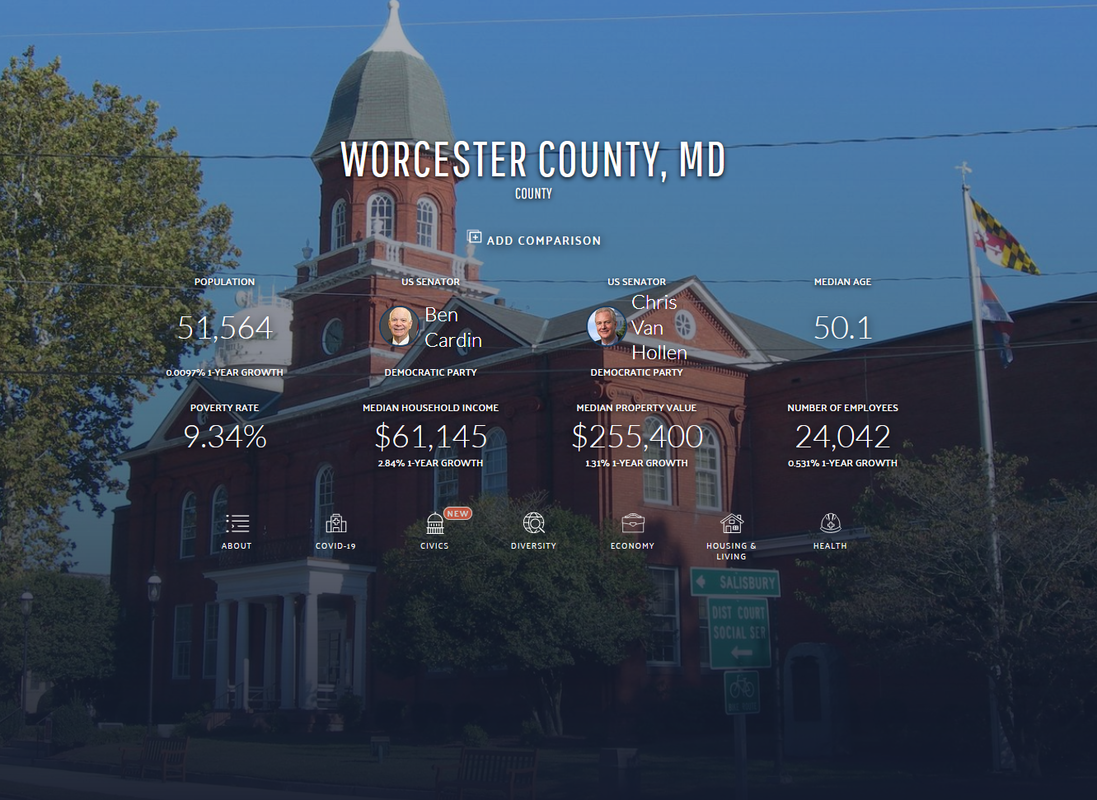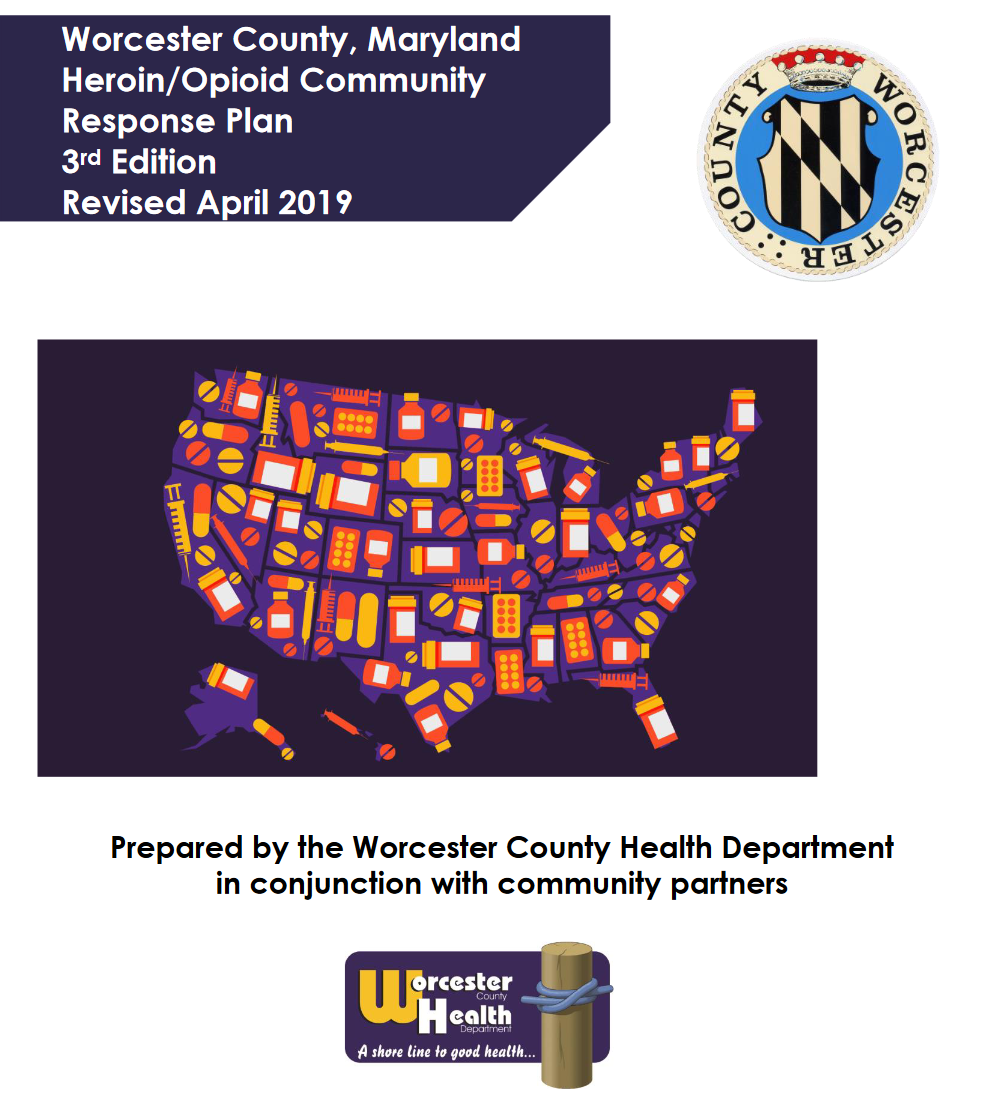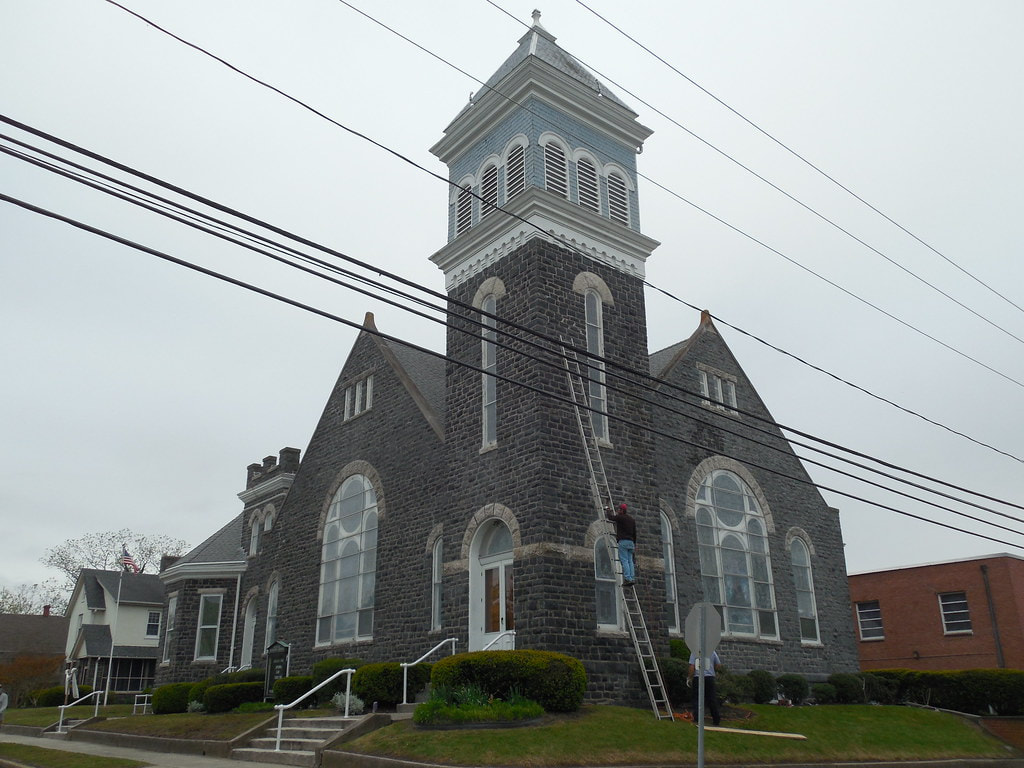Community Participation 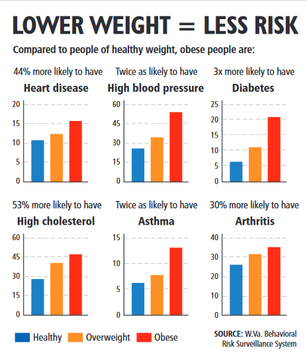 One of the greatest challenges we face when we talk about the health issues that affect us, our neighbors and our fellow Americans is the fact that we can have fairness, or equity, in both treatment, quality, and opportunity to get the right treatments we need. While for some the current trends of health care and opportunity works for some, it leaves behind many in the wake of terrible costs and low opportunity to even prevent health issues before they arise. Virginians, both in West Virginia and Virginia are experiencing an epidemic of obesity. Claimed in an info-graphic (file below) in 2016, over 1/4 Virginians are classified as obese, and suffer many troubling issues and health concerns from it.
To fight this, both the CDC and local Virginian programs have taken up the challenge to combat this escalating problem, in both releasing information to raise awareness to it's community and embracing events and changes to start reducing the obesity numbers. The CDC's impact is collecting and sharing a wealth of information that explains just how impactful certain health issues are, and what some of these causes are from, such as the use of tobacco products to the items served by schools. ( Source located here: Link ) In one example to achieve health equity, West Virginia implemented Try This, a repository of community challenges that any member, big or small can participate in. Such achievements of the Try This organization include, but are not limited to: "Workshops, social media and on-the-ground organizers to help local people plan projects, carry out long term planning, find resources and get training. Since 2016, Try This has sponsored ten regional meetings and has sparked the statewide Mindful West Virginia network." ( Source located here: Link ) Health officials are regularly engaged with both the local and federal levels of how the systems of health care can change to help less privileged people, and even other systems that too will help balance the overall health inequity several communities face. Director of the state Office of Maternal Child and Family Health Christina Mullins is in a constant fight on behalf of West Virginia, citing that "One in four West Virginia fifth-graders have high blood pressure, cholesterol and obesity, well above the national average." She also goes on to say that the people there, both the community and local officials have a drive to change the trajectory that West Virginia is heading to. One of West Virginia's accomplishments for fighting for the community is stated by Mullins that: "The state Bureau of Public Health and the state Department of Education are meeting regularly to plan for children, she said. DHHR gave the schools a half million for playgrounds... They want to let residents of communities with no gyms use school gyms after school." ( Source located here: Link ) It's not just local officials getting active. The Charleston Gazette reported that local stores, such as Walmart, have committed to push more healthier alternatives to consumer's shopping habits rather than junk food. Instead of skittles and gum, fruits and toys such as jump ropes were put at displays, especially the check-out lines. This has an enormous reach to all kinds of communities, and has the community optimistic that the work done by businesses and local officials will have the impact needed to not just slow the obesity epidemic, but reverse it. ( Check out the video below for how the local community has responded to such a change ) Elements of Culture 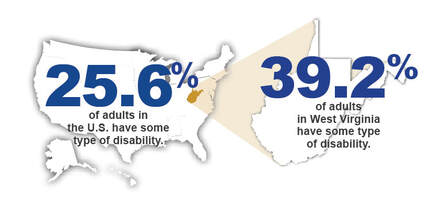 As evidenced by the CDC, the impact of the obesity epidemic, along with other health issues is devastating. ( CDC Source located here: Link ) However, West Virginian's health were in much better shape and health just a few decades ago. The transition of the culture from hard, labor workers, such as coal miners and foresters, have now become a massive consumer of fast food and sugary carbonated drinks. The Shape We're In, a documented series on the Charlestown Gazette, has taken a step back in time to find out how, when and why West Virginians were escalating in health issues. By observing the trends that the rest of America has followed, and the phasing out of hard physical labor, it wasn't long before a calamity struck almost every community. From the subtle changes in the workforce culture, it has altered an entirely new one that has worsening health complications by the years, with no end in sight. A quick look below, provided by the gazette, provides a bulleted list of what contributed to the shift. ( The picture is also a link to the source ) While compared to an entire state, Worcester County of Maryland has a somewhat similar breakdown of ethnic background make up. Our work culture remains rural and tends to be centered around agricultural purposes, with a high concentration on raising chickens. A wealth of demographic information of Worcester County can be found here: Link For more in-depth information on Worcester County's cultural make-up, consider the additional source found linked to the picture above. For those interested in joining the cause to fight for various health inequities, including the focus of this blog opioids in the community of Maryland, and specifically around the eastern shore area, counties near and including Worcester County, consider reaching out to the following resources below. (Please note that some of these resources do not have a specific contact person, but any additional information will be provided below to compensate) 1.) Snow Hill Health Center (Worcester County) 6040 Public Landing Road Snow Hill MD 21863 [email protected] 410-632-1100 (Phone Number) 410-632-0906 (Fax Number) http://www.worcesterhealth.org 2.)W.A.C.S. Health Center Worcester Addictions Cooperative Service Center 11827 Ocean Gateway Ocean City, Maryland 21842-9529 Phone 410-213-0202 3.)Berlin Health Center 9730 Healthway Drive Berlin, Maryland 21811 Phone 410-629-0164 4.)Pocomoke Health Center 400-A Walnut Street Pocomoke, Maryland 21851 Phone: 410-957-2005 5.)Department of Development Review and Permitting (Worcester County) Government Center One West Street, Room 1201 Snow Hill Maryland 21863 Telephone: 410-632-1200 Fax: 410-632-3008 http://www.co.worcester.md.us/departments/drp SPECIFIC CONTACT INFORMATION BELOW Jo Ellen Bynum, Program Administrator Phone: 410-632-1200 (ext. 1171) 6.) Recovery Resource Center 726 S. Salisbury Blvd. Suite E Salisbury, MD 21801 410-749-9482 SPECIFIC CONTACT INFORMATION BELOW Betty Hartman - Desk Manager / Volunteer Coordinator
|
|||||||||||||
| establish_a_line_of_communication_between_community_leaders.docx | |
| File Size: | 13 kb |
| File Type: | docx |
( Click on the picture above to be taken to an already active plan prepared by the health department )
One of the steps I have already taken is the possibility of opening up an Narcotics Anonymous in the immediate community of Snow Hill, my hometown. While there are NA options in locations such as Pocomoke and Salisbury, there's a void in Snow Hill, which evidenced by my previous blogs, Worcester residents do face a common issue of transportation. By opening an NA locally, those who are going through opioid abuse, as well as other substances, can get the community outreach, resources, and guides they need without being judged or ostracized by others.
Often times churches are used to host these meetings. Snow Hill Christian Church, located directly in the heart of the town, is an excellent and conveniently placed location that can serve the community a greater good by having such meetings there. While it is no direct solution, everything requires diligence and an open mind to options, and if NA can help just a few people overcome their addictions, then to me it's all worth it.
Because of COVID however, I could not establish contact with the church, to see if the idea could be feasible, but I remain optimistic that Snow Hill, Worcester, and all of Maryland, through effort and a constant supply of genuine community support, we as neighbors, Americans, and as family, can achieve anything we put our minds to.
One of the steps I have already taken is the possibility of opening up an Narcotics Anonymous in the immediate community of Snow Hill, my hometown. While there are NA options in locations such as Pocomoke and Salisbury, there's a void in Snow Hill, which evidenced by my previous blogs, Worcester residents do face a common issue of transportation. By opening an NA locally, those who are going through opioid abuse, as well as other substances, can get the community outreach, resources, and guides they need without being judged or ostracized by others.
Often times churches are used to host these meetings. Snow Hill Christian Church, located directly in the heart of the town, is an excellent and conveniently placed location that can serve the community a greater good by having such meetings there. While it is no direct solution, everything requires diligence and an open mind to options, and if NA can help just a few people overcome their addictions, then to me it's all worth it.
Because of COVID however, I could not establish contact with the church, to see if the idea could be feasible, but I remain optimistic that Snow Hill, Worcester, and all of Maryland, through effort and a constant supply of genuine community support, we as neighbors, Americans, and as family, can achieve anything we put our minds to.
0 Comments
Your comment will be posted after it is approved.
Leave a Reply.
Author
Senior at Salisbury University, working towards a Bachelor's on Community and Professional Communication.
